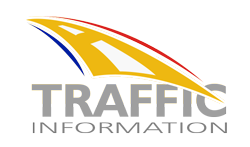Leading from the front – MIWA short skills training gains momentum
A key strength of any industry lies in its ability to adapt, upskill and empower its workforce and the automotive aftermarket is no exception. The Motor Industry Workshop Association (MIWA), a proud association of the Retail Motor Industry Organisation (RMI), is making bold strides with its new short skills training programme, aimed at building practical capabilities across the sector, especially in small and medium-sized workshops.
Open to all 2 500 MIWA members, the programme has been welcomed by employers across the country. Among the first to enrol was Teresa Spenser Higgs, a long-standing MIWA NEC representative and RMI Board Member based in the Eastern Cape. As both a leader in the industry and an employer herself, she says participation was non-negotiable. “The only way to know how a programme works is to experience it at ground level. If we expect our members to engage, we have to lead by example and be prepared to share the journey, challenges and all.”
Spenser Higgs is currently enrolled in the Customer Service course and describes the experience as deeply enriching. “It’s been incredibly rewarding to witness students learning from each other and sharing ideas from their own workshop environments. That peer learning – that spark – is magical.”
The programme is delivered in a blended format, combining online theory with in-person assessments. Spenser Higgs notes the structure makes it accessible even for time-pressed businesses. “It’s flexible enough to integrate into our daily operations. Some students do struggle with time management, but the recorded sessions and second-chance options really help. It’s designed to work in the real world.”
She also isn’t shy to point out areas for improvement. “Some of the content still needs to be fine-tuned for our industry. And we need to look at adjusting the rollout timeframes. But that’s the nature of a pilot – we’re learning together, and that’s a good thing.”
Louis van Huyssteen, RMI National Training Director, explains that the short skills model is designed to close critical skills gaps in a scalable way. “It allows employees to earn nationally recognised credits without needing to step away from the workplace. For smaller workshops, especially in more remote areas, that’s a game-changer.”
Spenser Higgs agrees. “In regions like the Eastern Cape, many businesses simply don’t have access to formal training centres. These short courses offer real, practical opportunities to grow – they give staff a sense of self-worth and validation, and in the long run, they help raise the bar on professionalism and service delivery.”
She is particularly passionate about the potential impact on women and support staff. “Women in the sector, especially those in non-technical roles, are often overlooked when it comes to training. Yet they’re the backbone of many businesses. From marketing and HR to bookkeeping and compliance – they juggle it all. These courses offer formal recognition for skills they’ve developed on the job, often without acknowledgement.”
Looking to the future, she’s optimistic about the broader impact. “Vehicles, customer expectations and marketing trends are changing fast. If we want to stay relevant and profitable, we need to keep learning. This kind of upskilling improves problem-solving, customer care and team morale – the returns are huge.”
“It’s not always going to be easy. It takes commitment and flexibility from employers. But the payoff is worth it,” she says.
Van Huyssteen agrees, noting that this is just the beginning. “The feedback from participants has been overwhelmingly positive. Our goal now is to expand the course offerings and ensure no business, irrespective of its size or location, is left behind.”
“Ultimately,” says Spenser Higgs, “this is about the long game. If we want a sustainable industry that grows, adapts and attracts the next generation, we have to invest in our people. And that starts with training.”
Related Posts
« Two suspects nabbed for illegal mining at Malipsdrift policing area appeared in court Joint efforts with Vumacam leads GPG Traffic Wardens to a vehicle recovery »




























